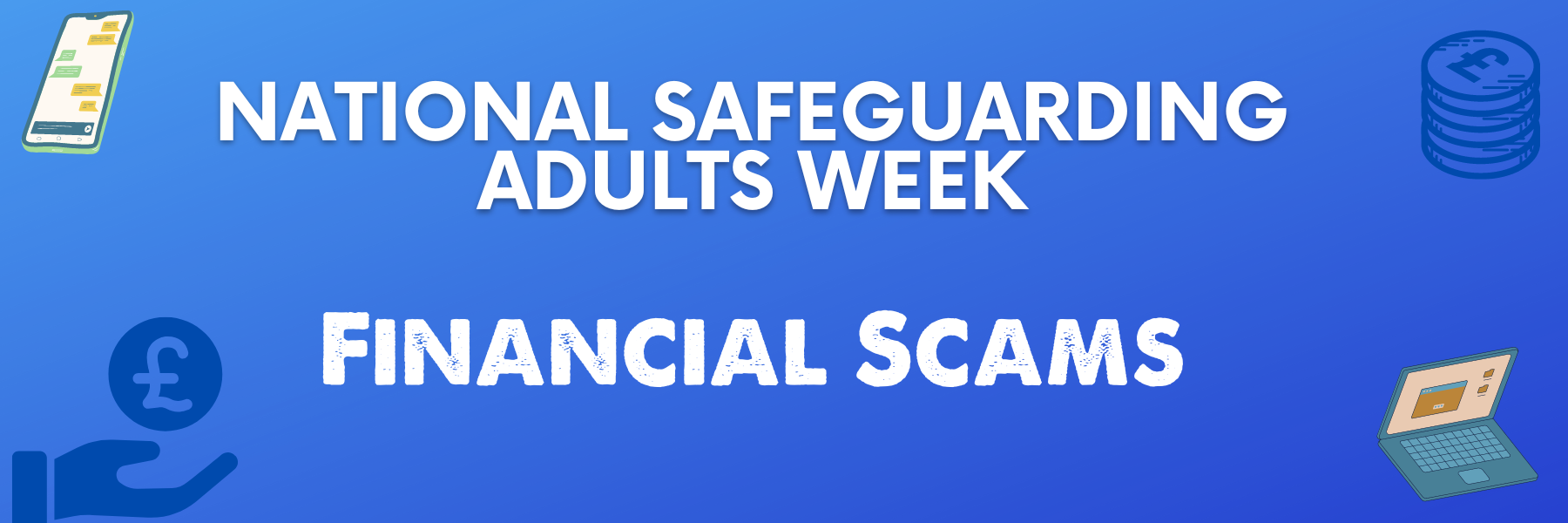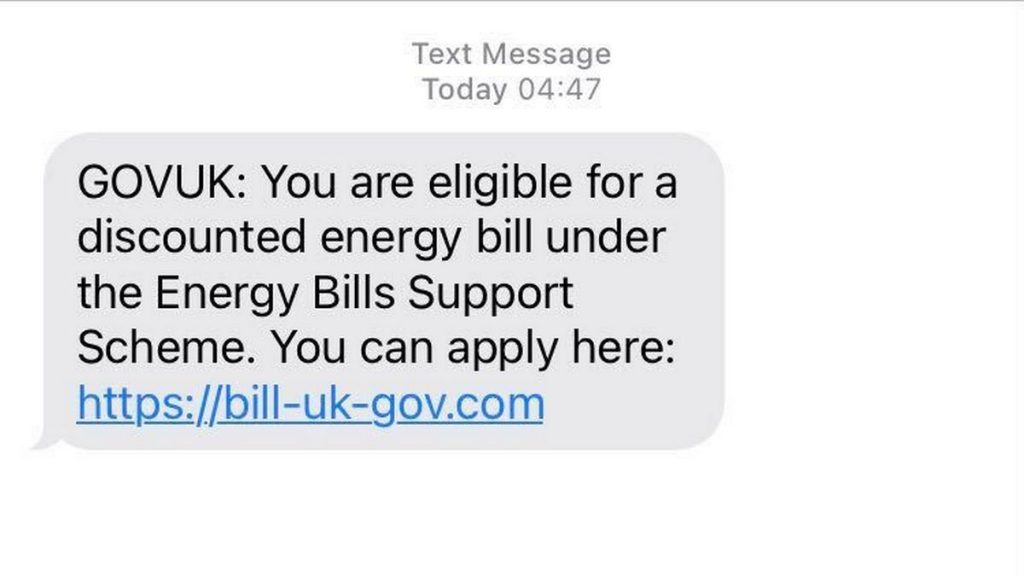Safeguarding Week; Finance Scams

This week marks National Safeguarding Adults Week, where we’ll be sharing articles on ways to protect yourself, your finances, and more. The Ann Craft Trust describes Safeguarding Week as: “A time for organisations to come together to raise awareness of important safeguarding issues. We hope the week will enable more organisations and individuals to feel confident in recognising signs of abuse and neglect and recording and reporting safeguarding concerns.”
Today we’ll be helping you to spot common scams that will try to steal your money and personal information, and how to protect yourself from fraud. We hope you find the following article useful and informative.
The cost of living crisis has sadly resulted in the creation of more financial scams, hitting 40 million people across the UK this year alone according to Citizens Advice. Scammers can pretend to be our loved ones asking for an urgent bank transfer, or appear to be from trusted organisations like Royal Mail or Amazon, as we all await the presents we’ve ordered for Christmas.
Scammers and hackers will continue to exploit people’s kind and trusting natures, especially in the run up to the festive period, so it’s more important than ever to keep a keen eye and double check before clicking links or sending money.
MoneyHelper.org have shared an extensive list of the types of scams you’re likely to encounter. These include:
 Energy bill scams
Energy bill scams
Scammers are now using the Government’s energy payment as a way to get you to open links or send over information. They will pretend to be Ofgem, the DWP (Department of Work and Pensions), or the Government itself. Your local council will automatically send you your energy payment without getting in touch with you, so do not click any links in text messages or emails from people pretending you have to do this in order to claim your payment.
Phishing
An email scam where you appear to get a message from an organisation or company like your bank, Amazon, HMRC, etc. The message will ask you to click a link to log in to your account, but instead it will open up a pretend version of their website to steal your personal details. Another version of phishing is through email attachments, where once you’ve clicked on the file, it will download a computer virus onto your device. Always check the email address, and go to the legitimate organisation’s website and login to your account rather than click links in suspicious emails.
Make sure you have up-to-date antivirus software on your devices. Check out Money Saving Expert’s article on the best antivirus software here.
Check out GetSafeOnline, who can check if a website is legitimate for you and if it’s safe to use.
Vishing
Voice phishing is where scammers will call you pretending to be from an organisation to get you to reveal information. It’s difficult to spot these, but if you feel uncomfortable or they’re asking questions about personal information such as your bank details, just hang up. You can call the organisation back using the number on their official website and check whether this was legitimate.
 WhatsApp Scams
WhatsApp Scams
There has been a huge surge in WhatsApp scams recently, where scammers will message you pretending to be a loved one who has broken their phone and needs money urgently. If they ask you to use a different bank account than their normal one, and refuse to voice note or call you, then the likelihood is that they are a scammer.
If you have been targeted by a scammer then please don’t feel ashamed. Scammers are evolving, and using better, more inventive means to trick people, making them harder to spot than ever. If you have sent money to someone, then contact your bank’s fraud line and they will do their best to recover your money.
Report the scam to the FCA (Financial Conduct Authority) who can look to preventing others from being impacted. You can also call MoneyHelper.org’s financial crimes and scams unit on 0800 015 4402 for free impartial advice. Citizen’s Advice will also be able to help, and you can check out the different ways they can support you via the link here.
